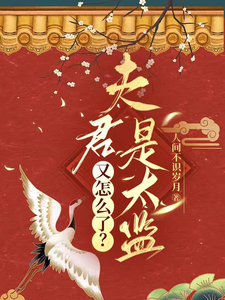Nan Sheng seized the opportunity to say, "Uncle Feng, I need to go to town tomorrow to collect the military allowance Lin Han sent. Can I take a day off?"
Feng Wuquan waved his hand. "It’s fine, you can go. Ride Uncle Liu’s ox cart tomorrow, and we’ll meet in town. I won’t count it as leave."
With their plans settled, everyone headed home. Nan Sheng called out to Lin Guozheng, "Grandpa, wait a moment. I have something for you."
Lin Guozheng turned back, and once the others were out of earshot, Nan Sheng spoke quietly.
"Find time in the next couple of days to go to town. Take all the family’s grain coupons and money—buy as much coarse grain as you can. Once word spreads, even money might not get you food. The shortage in the entire county is too severe."
After a pause, she added, "If you’re short on cash, I can give you the betrothal money first. Securing the grain is the priority."
Lin Guozheng shook his head. He and his wife had about 150 to 160 yuan saved. Cornmeal cost eight fen per pound—with that, they could buy over 1,500 pounds.
Of course, the lack of grain coupons meant they’d have to trade for some or risk the black market.
The two of them wouldn’t even finish that much, leaving plenty to spare.
He’d also notify his two sons. They had some savings and should convert it all to grain. Lin Guozheng knew well that both families would need his support.
"You and the kids should be careful too. If disaster strikes, desperate people will steal food. Stay alert at night."
When pushed to the brink, people shed shame and morals. Losing food was one thing, but losing lives was far worse.
Nan Sheng understood. She planned to buy a sharp knife and a chopping knife tomorrow—enough to protect the household.
The reactions of her stepmother and grandfather made Sizhe uneasy. Nan Sheng patted his hand. "Don’t be afraid. Our family has money. You and your sister won’t go hungry."
Sizhe glanced at his stepmother and lowered his head silently, wondering—if she got desperate enough, would she... maybe... possibly... eat children?
Nan Sheng mulled over stocking up on supplies: rice, flour, coarse grains, oil, salt, soy sauce, vinegar, spices, and sugar.
The space she once disliked now proved useful—store grain at home, keep money and valuables hidden away.
She also needed to gather her family and the children, dissolve the vitality-boosting pills in water, and have each take a sip.
That night, many lay awake.
The village chief and his team set out at dawn to rally nearby villages.
Nan Sheng rose early to cook. Sizhe would go to school, but little Siqi needed care. After some thought, she packed water for the child and took her to Lin Guozheng.
When Nan Sheng returned, Uncle Liu was already waiting. "Lin Han’s wife, hurry up! The chief asked me to take you to town."
Uncle Liu’s cart was steady, avoiding bumps so well that Nan Sheng dozed off. She only woke when they arrived.
Uncle Liu chuckled. "I wanted to chat, but next thing I knew, you were nearly snoring."
Nan Sheng rubbed her face, feeling flushed, and changed the subject. "Uncle Liu, find some shade. I’ll buy you an ice pop when we head back."
First, she went to the post office for the money order. The clerk recognized her and handed over a thick letter. With the order and ID, she withdrew 80 yuan.
Why so much?
Tucking the cash away, she asked the clerk, "Comrade, I’m now the village record-keeper and can’t easily come to town. Could you deliver my mail with the rest?"
The clerk agreed. He’d wondered why she didn’t have the order sent home—probably hiding the amount from her in-laws.
"Don’t worry. If it’s not you, I won’t let anyone else sign for the money orders."
"Thank you! You’re a fine comrade with a bright future!"
The clerk flushed at the praise. Nan Sheng felt a bit insincere, but flattery was necessary when dealing with useful people.
In a secluded spot, she opened the letter. Lin Han’s handwriting was rigid, reflecting his no-nonsense personality—likely lacking in romance.
The letter was brief: he’d been promoted from deputy to full battalion commander, with increased pay and bonuses. Henceforth, he’d send 80 yuan monthly, more if needed.
He also proposed sending his parents five yuan monthly for their support. If she agreed, he’d increase the household remittance to 85 yuan.
The man was honest and consultative—Nan Sheng figured he’d be easy to live with.
Best of all, he’d included unused ration tickets from comrades: grain, oil, sugar, soap, and industrial vouchers. Though grain tickets were scarce, she could trade the others.
Now she had 80 pounds of grain tickets, 10 of oil, 5 of sugar, plus soap and industrial vouchers.
Lin Han even secured a wristwatch ticket and a sewing machine ticket—highly coveted items worth over 200 yuan in good times.
At the supply cooperative, she bought two sacks, used up the oil and sugar tickets, then moved to grain. One grain ticket bought one pound of flour or rice—or three of cornmeal.
She bought 80 pounds of rice. Too heavy to carry, she had it delivered to the entrance, disguising the sacks so no one could guess the contents.
By chance, Nan Mingli arrived late after warning their grandmother and uncle.
"Sis, you took the ox cart? Mom told me to buy grain for you. Why just one sack?"
Nan Sheng whispered, "This is rice for holidays. I’ll get flour next, then coarse grain."
Mingli was impressed. His sister had foresight—marrying a widower with two kids paid off. The man had money, ensuring the family wouldn’t starve.
"Wait here, Sis. I’ll use my grain tickets too."
Mingli returned with a sack of cornmeal. "We’ve got 200 pounds at home. Come on, I’ll take you somewhere special."
Nan Sheng knew he meant the black market. With recent good harvests, authorities turned a blind eye to such trade—no longer so secretive.
But the rule was clear: transactions were final. Cause trouble afterward, and you’d face consequences. Years ago, someone bought a sewing machine there, then reported the seller.
The informant ended up dead—case unsolved.
"Remember, when we wanted flour dumplings for holidays, we came here. No need for disguises, just hide your face. And outside these two streets, deny everything."
Nan Mingli explained as they walked. The siblings both wore straw hats and plain clothes, with only the bicycle and two bags of grain standing out.
"Sis, tell me honestly—how much grain do we need to buy? If it's a large amount, we can have it delivered to a discreet location and wait there."
Nan Sheng calculated. From now until the next autumn harvest, fifteen hundred pounds would be enough, including fine grains like rice and wheat flour.
She deliberately planned to buy extra, just in case.
"We’ll need at least a thousand pounds. I still have some valuable ration tickets—let’s see how much we can exchange for them."
There was a designated courtyard for buying grain. Nan Sheng followed her brother to the end of the black market alley and knocked on a door.







